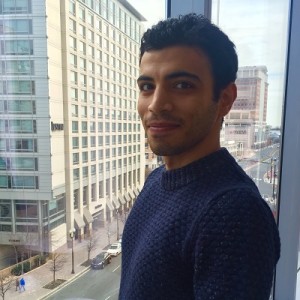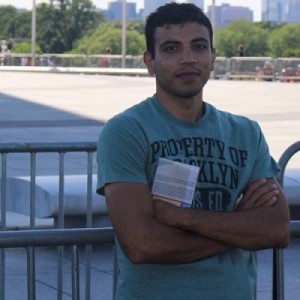DAC Student Spotlight: Yaser Keneshloo

Yaser Keneshloo, DAC Ph.D. student in computer science
A collaborative project with the Washington Post to predict the popularity of news articles kept Yaser Keneshloo busy after joining the Discovery Analytics Center in the spring semester of 2014.
“The Washington Post now uses this research as an internal tool for predicting the click-rate of a news article within 24 hours of publication,” said Keneshloo, who worked on this project with his advisor, Naren Ramakrishnan. He has also presented this work at the 2016 SIAM International Conference in a publication co-authored with his Washington Post collaborators.
Currently, Keneshloo spends some of his time working on a harder problem — automatic document summarization and machine translation — which requires knowledge in deep learning and natural language processing. The main objective, he said, is to build a model that generates automatic two to three sentence summaries from the content of a news article.”
One of the best things about being a DAC student, Keneshloo said, is being able to work toward solutions to a number of problems. “You are always involved with interesting projects from different government agencies and private companies,” he said. “And DAC tries to keep the projects related to your research to make the greatest impact.
Keneshloo graduated in 2012 from Iran University of Science and Technology with a master’s degree in software engineering with a specialization in artificial intelligence.
“Our world is now moving towards using artificial intelligence in almost every aspect of our daily life, from calling/texting your friends to making a restaurant reservation just by talking to your phone to making robots that could comprehend the surrounding area and react according to it,” Keneshloo said.
“Deep learning models are the building blocks for most of these ‘smart’ applications. Thus, working in this area allows me not only to understand how these real-world problems are being solved, but gives me a chance to propose new solutions for tasks that are yet to be solved by machines,” he said.
Keneshloo’s projected graduation date is Summer 2019. When he looks to the future, he sees himself working on other aspects of deep learning problems.
“So far, I have explored text summarization and machine translation problems, but there are many other problems that use deep models, such as speech synthesis, automatic cars, robotics, and recommender systems. Each of these problems has its own set of challenges and I am hoping that by combining knowledge from solving each specific task, one day we be able to offer a generalized model to do all these different tasks just as humans do,” he said.

 The Washington Post director for Big Data and Personalization, Sam Han, discussed the Post’s collaboration with DAC at the
The Washington Post director for Big Data and Personalization, Sam Han, discussed the Post’s collaboration with DAC at the